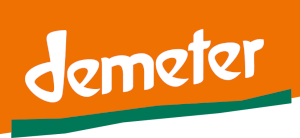The Dairy
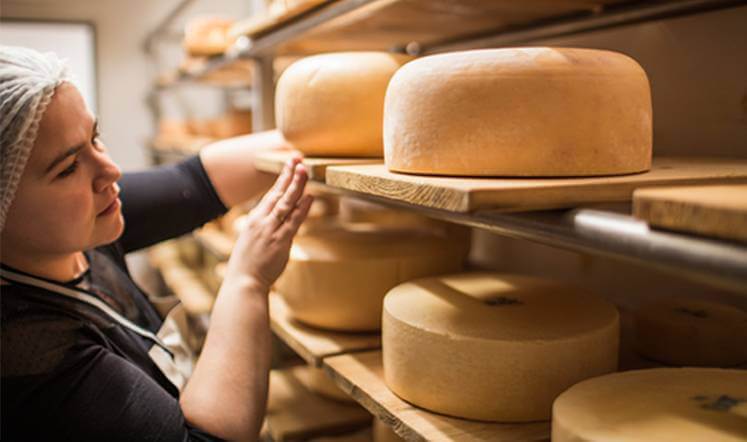
Fig, Thyme and Walnut
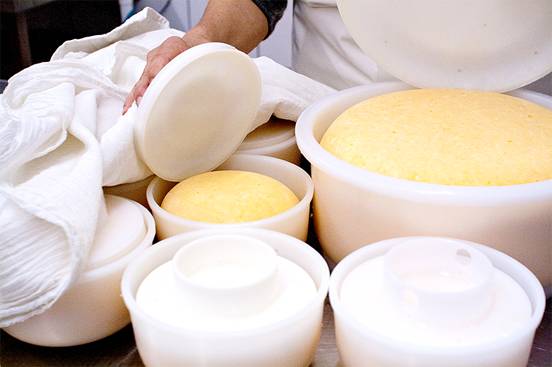
Every day in the dairy beside the cowshed the fresh milk from our cows, sheeps and goats is transformed into various dairy products such as yoghurt, drinking yoghurt, curd and ‘Schwedenmilch’ (a type of buttermilk). Both the hard and soft cheeses we produce are matured in the cellar: popular farm fresh cheeses, carrot, fenugreek or mountain cheese, feta, camembert and many more. ‘Honey and fig’, ‘garlic and thyme’ and ‘chili and walnut’ are only some of the wide variety of delicious types of cream cheese produced here in Michaelshof.
A number of process are necessary in order to manufacture all these fantastic products. First of all however we think it’s really value the animals who give us their precious milk. We try to have as much consideration for them as possible and to treat them gently and with respect as we transform it into our <Speciality Sammatz Cheeses>.
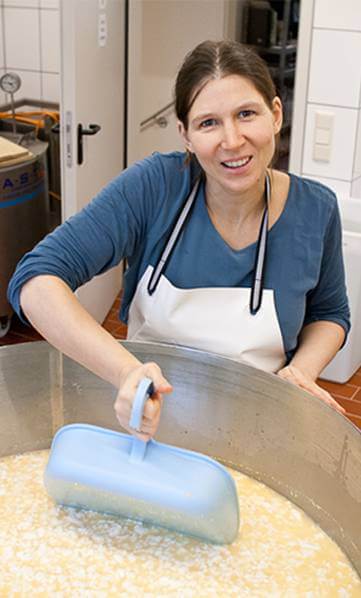
The animals, who give us their
precious milk …
The milk from our Angler-Cattle has over 5% fat. This is the reason that it has such an intense flavour that it sometimes seems as if it comes from cattle living in the alps! Indeed the only thing missing is the mountains… Our native german dairy sheep and our ‹Toggenburg› and ‹Thuringian Forest Goats› provide excellent milk too and their distinctive flavours make many great variations possible.
The milk from our cows is carried directly from the sunken milking parlour into the big milk tank (which holds 300 litres) in the processing room of the dairy. Its processed further here – where the cheese vat stands ready! First the milk is heated before being acidified to produce cheese. When the rennet is added, the mass sets and becomes solid. It is then ready to be
‘cut’. We now have the so-called ‹cheese curd› which, depending on its size, is a crucial factor in determining strength of the cheese. When this is taken out of the cheese vat it is poured into moulds. It is then pressed and left in one of the two rooms in the cellar to mature. The time it takes for the cheese to mature varies greatly – from Camembert which needs only a few days, to mountain cheese which needs to be left for over a year! The hard cheeses are taken from their place on the shelf every day and washed in a salt bath. This is a long process which indicates just how valuable the cheese is. Although this care is unbelievably important for the health of the loaf of cheese it is often underappreciated.
In the cellar,
where the cheese lies on wooden boards…
When you go down into the cellar, where the cheese lies on wooden boards, you have to marvel both at the huge volume of milk which has been processed – it takes 10 to 11 litres of milk to produce 1 kilogram of mountain cheese – and at the wide variety of cheeses and their different mould cultures. Take for example the difference between, ‘Ziegentaler’ a typical cream cheese made from goat’s milk and Romadur, a strong cheese covered with a delicate layer of red mould.
Cheese is not the only thing we produce in our dairy – there is also great demand for our yoghurt and cottage cheese amongst our customers. To increase the shelf life of these products we pasteurize them and we also do our best to keep a constant eye on the quality of the raw milk we use. The milk in transformed into yoghurt overnight in a large incubator. Set or creamy? It’s a matter of taste! If the yoghurt is then flavoured with raspberries or other fruit, the range of choices available becomes so great that its almost impossible to decide what to buy when you see them all lined up in the fridge in the shop! On the other hand, the much loved Quark is always ‘suspended’to allow it to set. It is then ready to be sold in pots.
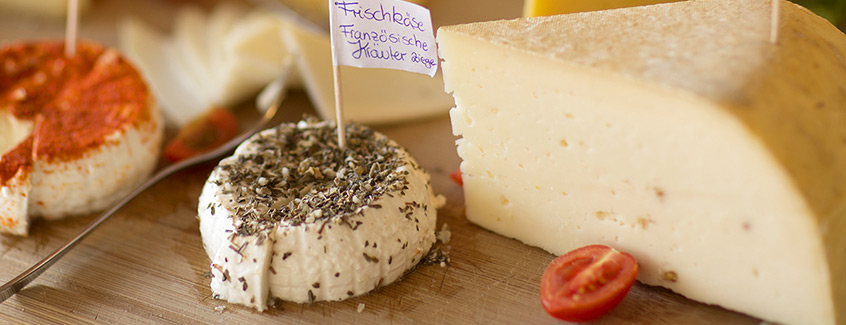
If we as visitors want to gain access to the dairy to take a look at these almost alchemical processes for ourselves, we must dress very hygienically – otherwise we won’t be admitted. Why? Because every alien germ can disturb the balance in this sensitive area.
Despite this however a guided tour of the dairy is available at 11 o’clock on the last Sunday of every month and participants even get a chance to taken part in the cheese-making! Its necessary to register in advance however. You can do so by ringing 05858/97030. The entry fee is 10 € for adults and 5 € for children. Have fun getting to know our dairy!


